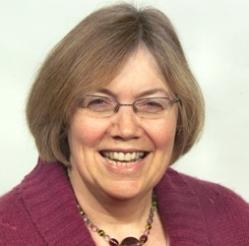Leaders in fundraising academia defended themselves against criticism that their research was inaccessible and irrelevant, in a heated panel discussion last week.
The audience at the panel discussion, hosted by Centre for Charitable Giving and Philanthropy (CGAP) last Friday, was supportive of the passionate defence of academic research served up by the panel members, which included Cathy Pharoah (pictured), co-director of CGAP, as the sole full-time academic on the panel.
After hearing suggestions from audience members who had attended a day's worth of CGAP research presentations that some of the work (with the popular exception of that by University of Kent researcher Beth Breeze) was difficult to understand, the panel and many others in the audience mounted a well-mannered rebuttal of criticism that has been niggling at the heels of academics working in fundraising research for years.
The divide between academia and the 'industry' has been particularly visible over the last six months, since the resignation of Institute of Fundraising chief executive Lindsay Boswell from the CGAP board in protest over its research priorities.
“There’s quite a gulf between the way academics think about philanthropy and the way, say, fundraisers think about philanthropy,” said Pharoah, who was joined by panel members, NCVO director of research Karl Wilding and David Emerson, chief executive of the Association of Charitable Foundations.
But she was firm in defending CGAP's approach to research into giving. “There are meanings of philanthropy that go beyond fundraising,” she said.
“The future of fundraising does lie in understanding much more where donors are coming from… not research on DM,” she said.
“We have to get beyond the marketing to understand what giving and philanthropy is about.”
Wilding echoed others’ frustrations with the way in which research into giving is received by practitioners within charities: “It’s an absolute pain in the bum to do research on charitable giving,” he said.
Warning that the divide between academia and the fundraising community may never be bridged, Wilding called for “knowledge brokers” to translate complex academic work into more accessible formats to be digested by practitioners.
“Stop assuming that academics can translate it themselves,” he said. “Stop assuming that our research is so wonderful that people will come to us. Stop assuming that people will understand the research.”
Pharoah noted that the lack of support of research by charities extended to putting money into research.
“Fundraising charities should put more money into research,” she said, adding that foundations also needed to start funding research and capacity-building.
Meanwhile Emerson, sitting at the end of the panel, was impassioned. “We’re not about providing fundraising advice,” he said.
“I feel passionately that we must research from the donor perspective. That’s what’s needed.”
The sentiment of the panel was echoed by Mark Philips, managing director of Bluefrog, who joined in from the audience. “We can only raise money by understanding donor needs.
“We’re in an industry – in terms of fundraising – that is almost broken,” he added, arguing that smaller charities merely copy what the larger charities do, and larger charities have become overly dependent on people forgetting to cancel their direct debits.









